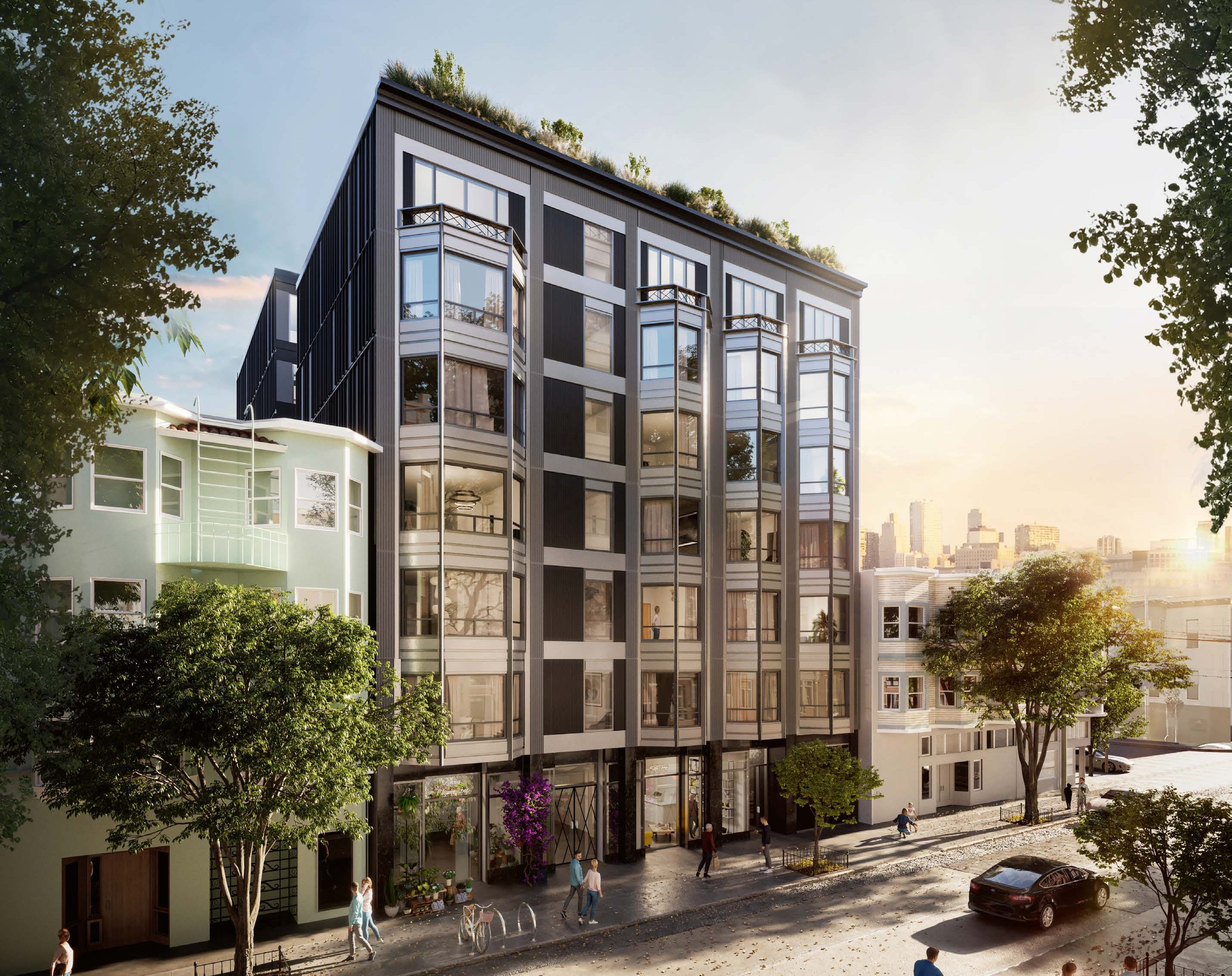Beginning in 2008 San Francisco adopted policies limiting parking for new housing in the Market and Octavia and Eastern Neighborhoods. This sea-change legalized building car-free and car-lite development and proved San Francisco was a leader on mitigating global warming through compact development centered on green mobility (public transit, cycling, and walking). By 2018 further parking reforms made it possible to build car-free housing anywhere in the city.
These hard-fought parking reforms are now under threat, and an avalanche of car-centric development could be coming to San Francisco. Here’s what’s going on, and why climate, housing and green mobility advocates should be concerned.
On April 28th a seemingly-routine infill project – 618 Octavia in Hayes Valley - was heard at the San Francisco Planning Commission and approved by a vote of 4-3. But the meeting itself was far from routine, and instead, it set a dangerous precedent for the city’s climate, transit, cycling and Vision Zero goals. The developer, invoking what are called “concessions” in the State’s Density Bonus law, demanded more parking than what was allowed by right.
California’s State Density Bonus law, amended in 2019, grants extra housing density to developers who incorporate more affordable housing into their projects. The more affordable units added to a project, the greater density allowed, creating more capacity for market-rate units as well. But the developer of 618 Octavia also used a loophole that circumvents local planning code and adds more parking.
Circular logic was used to justify the parking concession. The developer used the Density Bonus to get more market-rate housing, but was now on the hook for the new increment of affordable housing. This added more cost to the project. Next, the developer claimed the project was no longer financially feasible due to the burden of providing these additional affordable units.
To make the project pencil-out, the developer triggered the Density Bonus concession for parking, claiming that the project needed ten excess parking spaces which, when sold at $120,000 per space, would offset the burden of having to provide affordable housing. The developer applied for a conditional use authorization from the city, as required, to build more parking, which was heard at April 28’s Planning Commission meeting.
This loophole in the State Density Bonus sets a bad precedent.
At $120,000 per space, using luxury parking to subsidize affordable housing undermines planning for compact development centered on green mobility. It’s tantamount to gentrification by parking.
During the planning commission hearing, public comments in support of excess parking included anti-urban and anti-transit rhetoric. Organized by YIMBY action, the Housing Action Coalition, and an array of suburban Bay Area realtors, commenters pleaded the victim, saying the extra parking was necessary because a car was necessary to live in the city. Many comments insisted families with children had to have cars, and some expressed outright disdain for Muni and our city streets. In their view, an armored cocoon is needed to navigate the streets of the city. A handful said that they left San Francisco because they could not find a suitable place to park.
It sounded like the angry secessionist language of Republican suburbs, not a vision of a greener more equitable future.
The Planning Commission voted 4-3, showing that the parking concession is controversial. Several commissioners pointed out that these parking concessions undermine city goals and threaten the environment and public health, which the Density Bonus explicitly forbids. Technically, even though the Density Bonus law is a state mandate, cities are not required to waive or reduce development standards that would cause a public health or safety problem, cause an environmental problem, harm historical property, or would be contrary to law. Yet the burden of proof is on the city, not the developer.
To their credit, the planning department’s own “findings” reported that the excess parking requested by the developer does not comply with city policies, but the majority on the planning commission ignored the findings of their own staff. Of the majority, one commissioner, Rachael Tanner, even suggested that the city was not ready for car-free living.
Meanwhile, Supervisor Dean Preston, whose district includes 618 Octavia, has formally requested to work with Senator Scott Weiner to address this loophole, stating “We recognize your commitment to addressing our climate crisis, and believe this interpretation of the state law runs counter to such efforts. As you know, private vehicle emissions are one of the leading drivers of carbon emissions, and I believe in dense, transit-rich neighborhoods like Hayes Valley we need to do everything in our power to disincentivize the use of automobiles.”
Let’s hope this does get fixed through such cooperation. But it would not hurt for climate, green mobility, and housing advocates to nudge the legislature, wherever you are in California.
***
Jason Henderson is a Professor of Geography and Environment at San Francisco State University and author of Street Fight: The Politics of Mobility in San Francisco and Street Fights in Copenhagen: Bicycle and Car Politics in a Green Mobility Capital. He also chairs the Hayes Valley Neighborhood Associations Transportation and Planning Committee.





